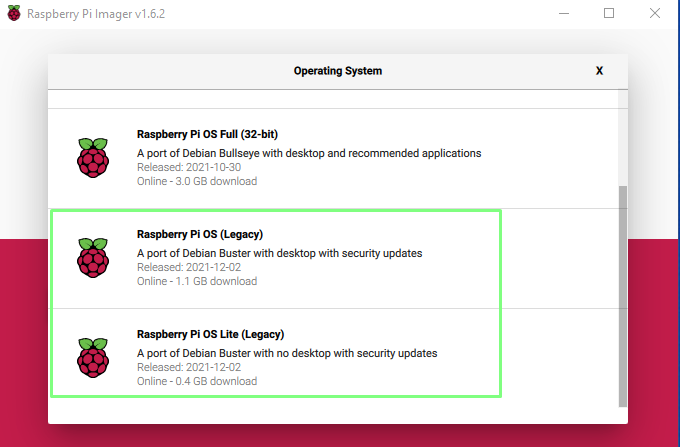Raspberry Pi Releases 'Legacy' OS to Target Bullseye Problems
Legacy OS addresses Bullseye issues
Raspberry Pi is releasing a new, old, version of its operating system, Raspberry Pi OS Legacy, to tackle problems and incompatibilities encountered in the recent transition to a new version based on Debian Bullseye.

As we reported at the time, Raspberry Pi OS Bullseye came with a free speed boost for certain Raspberry Pi models, a new window manager, and a host of problems not limited to library and HAT compatibility, video drivers, and with camera modules.
The new Legacy release claims to fix all that. Based on Buster, the previous release of Debian, it removes the hardware-accelerated version of the Chromium browser that was one of Bullseye’s headline features, replacing it with an upstream software-accelerated variant. A new option in the raspi-config app allows the reinstatement of legacy camera interfaces.
The legacy OS sticks with version 5.10 of the Linux kernel, and branches the firmware too, so won’t support any future products. It will, however, continue to receive security and hardware support patches as they become available.
“Although we will not support new products on the legacy image, we will make sure any new revisions of older products continue to be supported,” writes Raspberry Pi director of software engineering Gordon Hollingworth on the Raspberry Pi website. “So, for example, if we were to release a (currently imaginary) new Raspberry Pi 4 rev 1.5 (which usually means component changes for supply reasons), it would be supported on the legacy image, whereas a new Raspberry Pi product (a future 5 for example, also currently imaginary) would not.”

The new (old) OS is available now from the Raspberry Pi software page, or using the Imager software, found under Raspberry Pi OS (other). Hollingworth added that once the ‘issues’ with Bullseye were sorted out, a 64bit version of the OS would be coming next.
Get Tom's Hardware's best news and in-depth reviews, straight to your inbox.

Ian Evenden is a UK-based news writer for Tom’s Hardware US. He’ll write about anything, but stories about Raspberry Pi and DIY robots seem to find their way to him.